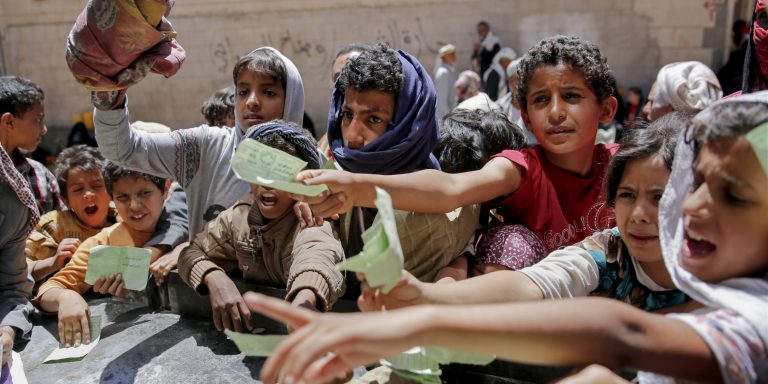INTELBRIEF
December 5, 2017
TSC IntelBrief: A Worsening Nightmare in Yemen

• On December 4, Houthi rebels killed former Yemeni president Ali Abdullah Saleh, adding more violence and uncertainty to the war in Yemen.
• Despite his ouster in 2012, Saleh managed to maintain the influence and clout he had built over 30 years in power.
• Two days before his death Saleh broke his alliance with the Houthi rebels he joined in 2014; the partnership succeeded in toppling his successor the following year.
• Saleh’s death will further complicate the Saudi-led coalition’s plans to exit from Yemen’s catastrophic war, making it even more costly to the Yemeni people.
The situation in Yemen—considered by many to be the worst humanitarian crisis in decades—has deteriorated again, proving that there is no bottom to the suffering caused by ill-conceived proxy and regional warfare.
On December 4, Houthi rebels killed the powerful, former long-time Yemeni President Ali Abdullah Saleh. After waging war against the Houthis from 2004 to 2011, Saleh joined the rebels in 2014, in a temporary marriage forged by shared interests. Together, their forces toppled the government of Saleh’s successor, Abdrabbuh Mansour Hadi, in January, 2015. That lead in turn to intervention by a Saudi-led, U.S. supported coalition, organized to defeat the Houthis and reinstall Hadi, who remains Yemen’s internationally recognized president. For nearly three years, Saleh’s faction—built over decades of tribal ties and patronage—fought with the Houthis against Yemeni and coalition forces, with the Saudi-led group mostly focused on airstrikes and a series of limited but significant ground campaigns in the south.
The Saleh-Houthi alliance lasted more than three years. Saleh’s break with the Houthis ended after less than three days. The split was unexpected. On December 2 Saleh called for political negotiations which the Houthis opposed, given the quagmire the war has settled in, compounded by their gamble that the Saudi coalition will quit first.
For the Houthis, Saleh was an important ally, but a tenuous one at best. Once Saleh announced the split, fierce street fighting broke out in the capital, Sana’a, between his outnumbered supporters and the Houthis. The former president was killed with a number of supporters and Yasser al-Awadi, a deputy in Saleh’s General People’s Congress, in a Houthi attack on their compound.
The war in Yemen has killed tens of thousands of Yemenis and led to starvation and famine, as well as a major cholera outbreak. Saleh’s death makes a near-term resolution of the fighting less likely, especially where the Saudi coalition is concerned. Had Saleh succeeded in leading even a marginally effective and popular anti-Houthi movement, the coalition could have begun to step away from a conflict that has been a disaster, both for them and their allies in Washington, in every way. A war to curb Iranian influence in Yemen has seen Iran become for more important to the Houthis then when the conflict started in 2015.
There are no Yemeni political figures comparable to Saleh in terms of influence, though there are reports the United Arab Emirates (UAE) might try to position Saleh’s son, Ahmed Saleh, as his father’s successor in both the General People’s Congress Party (GPC) and a newly energized anti-Houthi campaign. However, it is uncertain how much power or influence the son would have, even with extensive UAE and Saudi backing.
The near-term result of Saleh’s death may be an increase in fighting by local forces, which in turn could intensify foreign interventions on both sides, as the Saudi coalition and Iran continue to protect and prop up their proxies. Additional air strikes are likely, though they have been more successful at destroying Yemen’s abysmal infrastructure than Houthi resolve and fighting capabilities. For its part, the U.S. will continue to find itself bound to a worsening crisis, with no upside for its national security interests and a tremendous downside, both for its humanitarian reputation and for Yemen, as the conflict worsens.
For tailored research and analysis, please contact: info@thesoufancenter.org
.
.